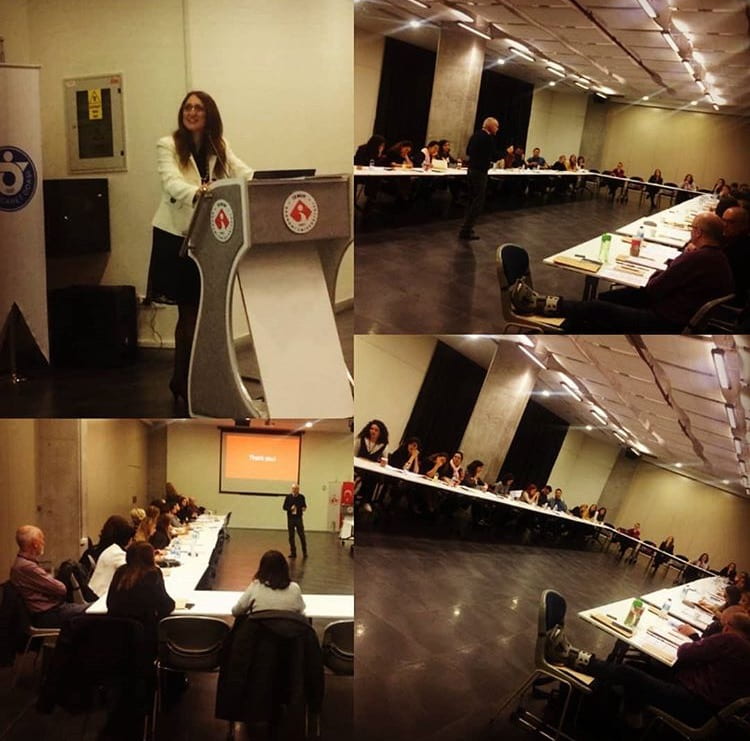Reflection on Forum on Curricular Issues (FOCI) XX by Nagihan Aydın
FOCI XX was held at İzmir University of Economics on 19&20 December 2019. The organizers were from Sabancı University (Jonathan Smith), İzmir University of Economics (Funda Akgül) and Koc University (William Kerr). There were many participants representing different universities from İstanbul, Ankara and İzmir.

The theme of the event was “Integrated vs Discrete Skills Curriculum: Are we who we say we are?”. The questions at hand were:
• What are the pros and cons of different approaches that we take in different institutions?
• What implications does the approach to this issue have on choice of course materials?
• To what extent do practical implications such as timetabling affect decisions about this issue?
The event has given the participants a chance to define what an integrated skills curriculum is, discuss the strengths of preparatory programs in Turkey in terms of this approach, and share the current situation in their own institutions. Representatives of Koç University and TED University, which were chosen as having the ‘most integrated’ curricula among the institutions that participated in the event, made presentations about their programs. They gave the details regarding their student profile, assessment system as well as the challenges of integrated-skills approach.

In this two-day event, participants were put into three different groups on the first day and had whole-group discussions by looking at the issue from three perspectives: Teachers, students and other stakeholders. At the end of the second day, the groups wrote a report and they were put into smaller focus groups in which members reported the most important points that came out of the previous discussions.

In focus groups, it was stated by many participants that even though integrated skills curriculum is viewed as an ideal system, it may also cause having some challenges especially with lower level and repeating students. Therefore, some of the participants came up with the question that “What’s so wrong with a discrete skills curriculum?” In the end, it was concluded that preparatory schools in Turkey mostly implement a mixture of integrated and discrete skills approach depending on the needs of their students. It was also noted that an integrated curriculum has to be supported by an integrated assessment as well, which requires a considerable amount of time and effort.

All in all, the event gave me a nice opportunity to reflect on our own practice here at Ozyegin University. In my informal discussions with colleagues from various institutions, I clearly observed that the thematic approach that we adopt in our assessment system is appreciated a lot by many. As usual, it was good to see that in our institution, we are doing a good job in terms of integrating skills both in curriculum and assessment.

Leave a Reply